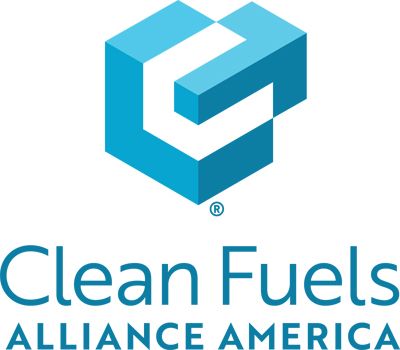Clean Fuels, farm, feedstock groups ask EPA to set 5.25-billion-gallon 2026 RFS BBD volume

March 17, 2025
BY Clean Fuels Alliance America
Today, Clean Fuels Alliance America, American Farm Bureau Federation, American Soybean Association, National Oilseed Processors Association, North American Renderers Association, and U.S. Canola Association sent a letter to EPA Administrator Lee Zeldin encouraging the agency to establish robust, timely Renewable Fuel Standard volumes for 2026 and beyond. The letter asks that EPA propose and finalize the 2026 biomass-based diesel volume at 5.25 billion gallons.
“We write today to ask that EPA without delay set 2026 RFS standards and adopt a robust step change in biomass-based diesel and advanced biofuel volumes,” the letter states, adding a request for the 2026 biomass-based diesel volume to be 5.25 billion gallons, along with a commensurate increase in the advanced biofuel volume. “Setting these volumes for 2026 and establishing consistent growth for 2027 and beyond based on the industry’s investments and projections will ensure that American consumers can access affordable and clean transportation options. These volumes will support farm security, create jobs and economic opportunity, and further President Trump’s goal for U.S. energy dominance.”
Kurt Kovarik, Clean Fuels’ VP of Federal Affairs, added, “Clean fuels are essential to U.S. energy security. Production of biodiesel and renewable diesel has doubled in the last few years, following investments in new capacity as well as in feedstock collection and processing. EPA needs to make a step-change in the RFS volumes for biomass-based diesel and advanced biofuels to account for proven production capacity and to support continued investment and economic growth.”
Advertisement
Advertisement
Advertisement
Advertisement
Related Stories
While final IRS guidance is still pending, the foundation of the 45Z program is well defined. Clean fuel producers should no longer be waiting; they can now move forward with critical planning and preparation, according to EcoEngineers.
The IRS on July 21 published a notice announcing the 2025 calendar-year inflation adjustment factor for the Section 45Z clen fuel production credit. The resulting adjustment boosts maximum the value of the credit by approximately 6%.
The U.S. Senate on July 23 voted 48 to 47 to confirm the appointment of Aaron Szabo to serve as assistant administrator of the U.S. EPA’s Office of Air and Radiation. Biofuel groups are congratulating him on his appointment.
U.S. Secretary of Agriculture Brooke L. Rollins today announced the reorganization of the USDA, refocusing its core operations to better align with its founding mission of supporting American farming, ranching, and forestry.
The U.S. Department of Energy’s Office of Energy Efficiency and Renewable Energy is soliciting public comments on a preliminary plan for determining provisional emissions rates (PER) for the purposes of the 45Z clean fuel production credit.
Upcoming Events










